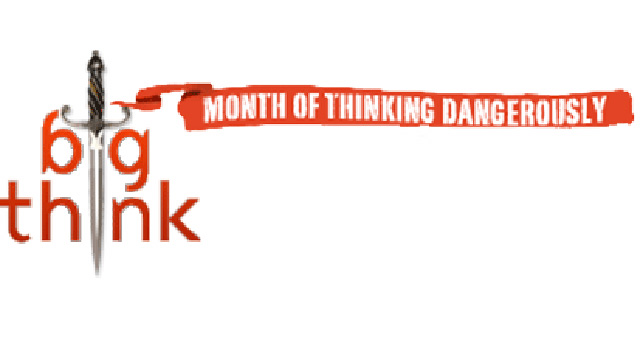Surprising Science
All Stories
Advertising billboards like ones seen in the film Minority Report, which can recognise passers-by and target them with customised adverts, are being developed by engineers at IBM.
The New Scientist attends the science conference at Google HQ and reports on virtual reality advancements, the direction of new media and how technology will revolutionize education.
Had Copernicus been too terrified to publish his theory of heliocentrism, how long would it have taken people to realize that Earth, in fact, revolves around the Sun? Had U.S. […]
“A ground-breaking study has found that mothers can go back to work months after the birth of their child without the baby’s wellbeing suffering as a result.” The Guardian reports.
“A study released earlier this year, examining the impact of Title IX, offers hard evidence that playing sports leads to greater educational and employment opportunities.”
“Why are we always making less than rational decisions? A new book by Dan Ariely explores how people embrace the irrational.” The Daily Beast reviews professor Ariely’s latest work.
“It seems dogs naturally match human gestures in a phenomenon known as automatic imitation.” Researchers help explain why dogs owners seem to resemble their pets.
“Where does the federal government get off spending the average person’s tax dollars to help better-off-than-average Americans buy expensive new cars?” Slate on the electric car credit.
A Harvard psychologist and dream expert explains how it is possible to influence what you are dreaming about whether you want to fly, stop a nightmare, or have lucid dreams.
“People who fake symptoms of mental illness can convince themselves that they genuinely have those symptoms, a new study suggests.” Scientific American on the power of the mind.
Being the bottom rung on the social ladder causes enough stress to shorten your life, according to a study of British social servants. Lack of control was the main cause of despair.
Whatever you want to call it, a half-zebra, half-donkey hybrid was born last week in a wildlife preserve in Georgia. The offspring of a zebra father and a donkey mother, […]
Until James Currier had four sons in 36 months, he was just a regular Silicon Valley entrepreneur. Having sold a start-up called Tickle to Monster in 2004, he took some […]
This idea was suggested by Big Think Delphi Fellow Joseph LeDoux, of the Center for Neural Science and Department of Psychology at NYU. “Blessed are the forgetful: for they get the better […]
“We’ll increasingly be defined by what we say no to,” says Paul Graham. The essayist writes that technological development creates addictive products from drugs to the Internet.
“Overall, social support increases survival by some 50 percent, concluded the authors behind a new meta-analysis.” Scientific American reports on the effects of our spreading social isolation.
David Keith, director of the Energy and Environmental Systems Group at the University of Calgary, says geoengineering should be “a central part of how we think about managing climate risk over the next 100 years.”
The Smart Set considers the phrase ‘State-of-the-Art’ and asks why some things receive so much praise just for being new? Progress, it says, is something distinct from improvement.
General Motor’s new hybrid car will soon sell for $33,500, after a government credit. The machine will be a test of the public’s willingness to go hybrid and its confidence in a revamped GM.
Let’s face it: The planet is heating up, Earth’s population is expanding at an exponential rate, and the the natural resources vital to our survival are running out faster than […]
What happens when you are on ‘the same wavelength’ as someone? New neurological data suggests physical traits are behind feeling a deep connection with someone.
“Before children even take their first breath, common air pollutants breathed by their mothers during pregnancy may reduce their intelligence.” Scientific America reports on urban pollution.
An Illinois particle accelerator is helping to determine the range in which the Higgs boson, a.k.a. “God particle” exists. The special particle is thought to give mass to other elementary particles.
Paul, the World-Cup-predicting octopus, has brought attention to recent research suggesting the octopus is a relatively intelligent animal despite its exclusion from the mammal club.
The U.S. needs “a long-term plan that recognizes the interrelated nature of obesity and global food sourcing.” The Atlantic says our culture of cheap is forcing us to eat unhealthy diets.
“Like children with their hands in the cookie jar, dogs steal food quietly to make sure they don’t get caught. The finding adds to evidence that dogs can work out what others are thinking.”
“The obstacles to energy access are not technical. What is missing is a global commitment to move energy access up the political and development agendas.”
“Can pot be a cause for the psychotic breakdown? Can pot actually help schizophrenics?” Dan Mitchell at The Big Money’s new marijuana blog says there is no causal relationship.
“We could be living inside a black hole. This head-spinning idea is one cosmologist’s conclusion based on a modification of Einstein’s equations.” The New Scientist on some very new astronomy.






